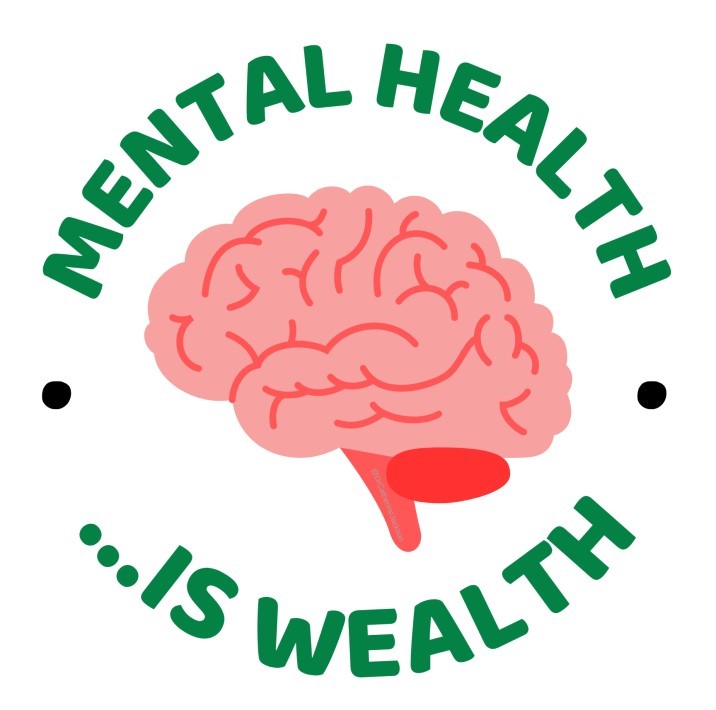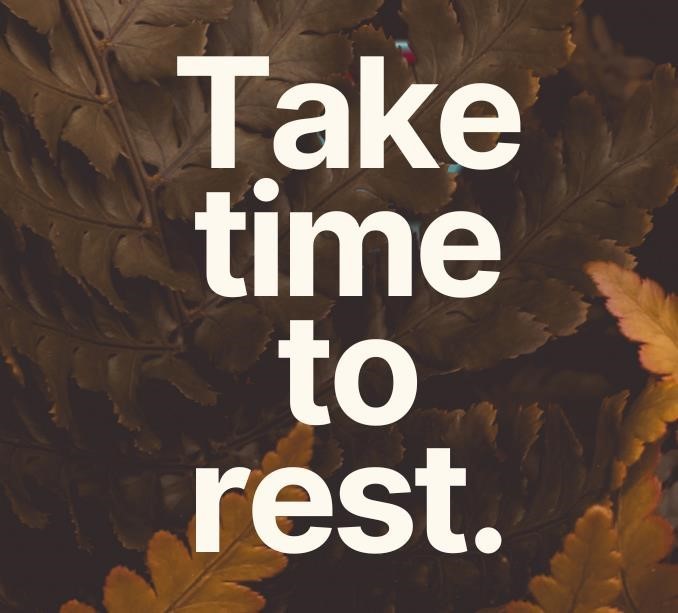How often when you think about building wealth do you think about your mental health? For most of us, the answer to this is little if at all. When most of us think of wealth building we think of money. Obtaining it, maintaining it, and having so much of it we can pass it down through the generations. Typically and traditionally building wealth involves generating and sustaining long-term income through a variety of income sources, savings, and investments that allow us to engage in the betterment of society as a whole through philanthropic efforts. However, mental health is wealth.

According to the World Health Organization (WHO), “Mental health is a state of mental well-being that enables people to cope with the stresses of life, realize their abilities, learn well and work well, and contribute to their community. It is an integral component of health and well-being that underpins our individual and collective abilities to make decisions, build relationships, and shape the world we live in. Mental health is a basic human right. And it is crucial to personal, community and socio-economic development.”
Furthermore, mental health is more than the absence of mental illness or mental disorders and is an individual thing that varies from person to person. And when one’s mental well-being is impaired it’s difficult to engage in typical activities, think clearly, and complete tasks. When mental health concerns go unaddressed that can lead to mental disorders, psychosocial disabilities, and other mental experiences associated with a great deal of distress, impairment in functioning, or possible risk of self-harm or suicide. From a brain-based perspective, unaddressed mental health concerns can lead to higher levels of stress that lead to increased cortisol levels and keep one’s brain and body in a heightened state of fight or flight. When our bodies stay in a state of fight or flight and cortisol levels remain high for too long, it can exasperate or lead to mental and physical health concerns.
When you think about it further are you able to focus on wealth building in the traditional sense of obtaining and sustaining money and using it to make an impact? I’d think not. So, a crucial part of wealth building is making your mental health a priority so you can focus fully on wealth building and all of your other well-being goals. Here are 14 different things you can do to begin to improve your mental health and well-being:
- Express Gratitude. Gratitude expression is good for the brain increasing feel-good neurochemicals and helping to wire the brain toward
- Track Your Achievement. Write down 3 things you were able to accomplish each day in a notebook or a journal.
- Take a Vacation or Getaway. It could be a staycation, a weekend getaway, or a full vacation out of town or even out of the country. Simply planning and looking forward to something can boost feel-good neurotransmitters and increase your overall happiness for weeks.
- Focus on Your Ideal Self. Work on developing your ideal self. Write down what you’d like to think, do, look like, etc. And begin to align all of your thinking and actions toward that. Take it to the next level and create a vision board to further this concept.
- Work on Your Self Confidence. Start with things you are good at and then slowly begin to tackle tasks that are increasingly more and more difficult.
- Put a Good Morning and Nighttime Routine in Place. Create a daily routine in the AM and PM to support your wellness journey.
- Boost Your Brain Power. Have a piece of dark chocolate or start your morning with some healthy caffeine with a lot of green tea. The flavonoids and caffeine, and dark chocolate and the caffeine and other benefits in green tea work to improve alertness and mental skills.
- Laugh. Laughter is good medicine. Hang out with a funny friend, watch a comedy or attend a live comedy show, or watch funny videos online. Laughter helps reduce anxiety and improve your mood when you’re feeling down or depressed.

- Get Moving. Move your body by dancing while you clean around the house, taking a walk in nature, engaging in Tai Chi, doing some yoga, or getting a 30-minute workout in. Movement increases endorphins in your brain and helps you feel good. Furthermore, research suggests being in nature can increase energy levels, reduce depression, and boost overall well-being.
- Practice Mindfulness. Engage in mindfulness practices to improve your mind-body connection, to be more aware and more accepting of yourself and the things around you.
- Forgive. Forgive. Forgive. Forgive others so you are not holding onto and harboring ill feelings that over time can have a major impact on your mental and physical health. Research shows those who forgive have better mental health and are more satisfied with their lives.
- Connect with Others. Close, quality, relationships are key for a happy, healthy life. Be sure to schedule time to connect with others, family, friends, even coworkers, or even volunteer and connect with like-minded people. You could even host a cookout, talk with people in the park, and play games, online or during a game night. By connecting with others you will reduce cortisol (the stress hormone) and boost oxytocin, which plays a role in bonding, trust, empathy, and social connection. Reducing cortisol and boosting oxytocin stimulates feelings of happiness.
- Assess Your Diet. Something you’re eating could play a part in you not feeling your best and can be zapping your energy. Take inventory of what you eat by tracking your food. Are there too many sugary and processed foods? Are you getting enough water, fruits, and vegetables? Getting enough omegas (omega-3, 6 and 9 )? Take a good hard look make adjustments as needed and notice any positive changes in how you feel mentally and physically.
- Rest! No one is meant to be on the go all the time during their waking hours. It’s okay to slow down and simply rest. Read a book, listen to music while lying down
and doing nothing else, engage in meditation, or even take a quick nap, etc. Whatever you choose to do, be sure to take breaks to simply pause from your hectic day and rest.

And when needed, reach out for support and the assistance of a mental health professional. Psychologists, psychiatrists, counselors, and therapists are trained to help.
